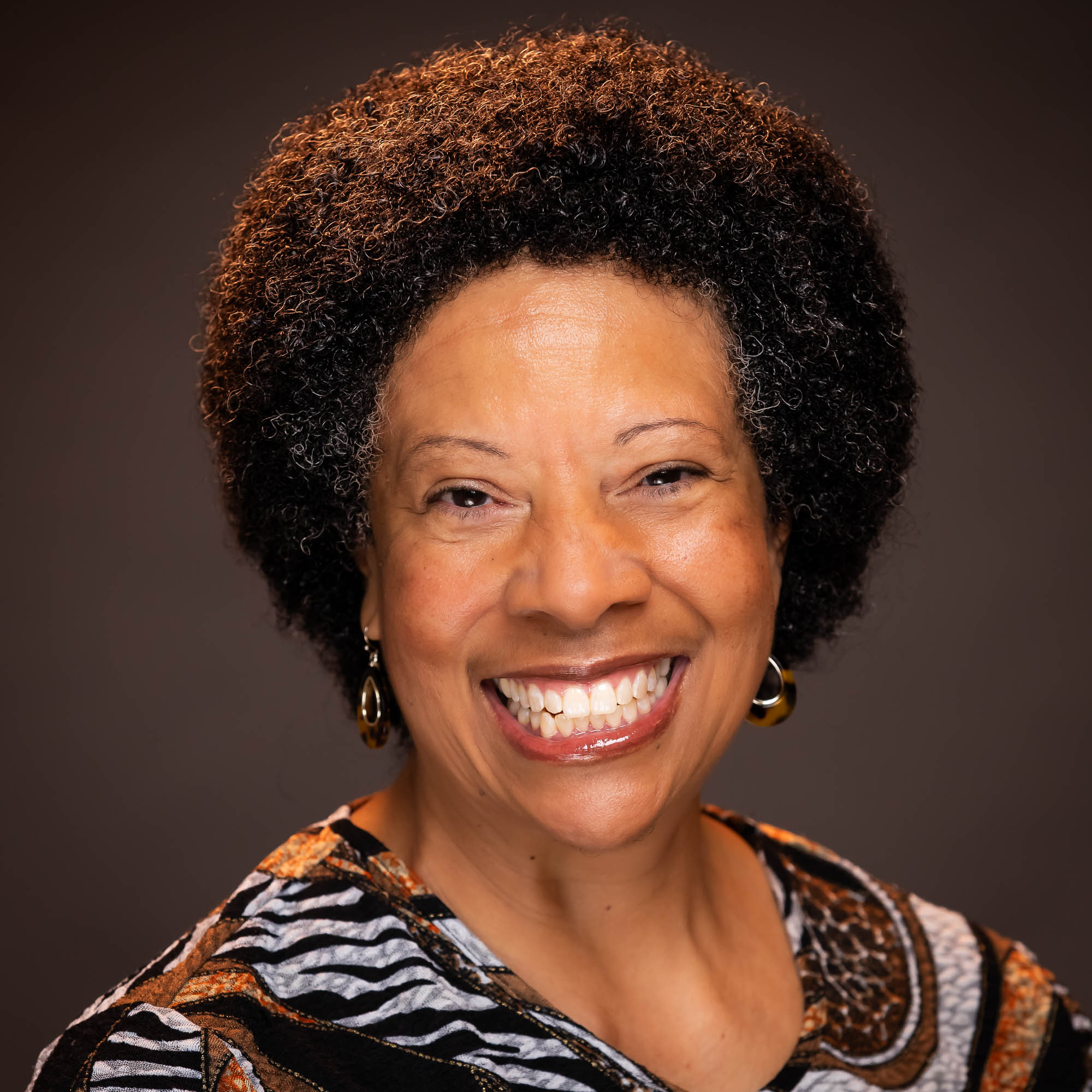Toya Wyatt

Department | Communication Sciences and Disorders
Phone | (657)278-3825
Email | twyatt@fullerton.edu
Office | CP 420-16
Office Hours
| View Here![]()
Degree and University | B. S. and M.A. (Northwestern University); Ph.D. (University of Massachusetts, Amherst)
Degree Area | Speech-Language Pathology
Teaching Areas | Multicultural Issues, Communicative Disorders
Research Areas | Language development and assessment of African American and bilingual children
Dr. Toya Wyatt is a professor in the Communicative Disorders (CD) program where she has been on the faculty since 1990. She has served as the CD program’s undergraduate advisor for more than 20 years and the Speech and Hearing Clinic Director since 2011. Dr. Wyatt's primary areas of teaching and research focus on the delivery of culturally and linguistically appropriate speech and language services to individuals from diverse backgrounds with a primary focus on the language development and assessment of children from African American and bilingual backgrounds. Dr. Wyatt holds a B.S. and M.A. in Speech-Language Pathology from Northwestern University and a Ph.D. in Speech-Language Pathology from the University of Massachusetts, Amherst.
Professional awards and honors include :
- Fellow, American Speech-Language-Hearing Association, 2003.
- Fellow, California Speech-Language-Hearing Association, 2002.
- ASHA Diversity Champion, American Speech-Language-Hearing Association, 2009.
- Diversity Award, California Speech-Language Association, 2009.
Recent class teaching and clinic supervision assignments include :
- HCOM 554 (Seminar: Multicultural Issues in Communicative Disorders)
- HCOM 558c (Clinical Practicum: Communicative Disorders and Differences in Individuals from Diverse Backgrounds)
- HCOM 577 (Seminar: Child Language Disorders)
- HCOM 404 (Communication Development/Disorders in Children from Culturally/Linguistically Diverse Backgrounds)
Sample publications and grants include:
Book Chapters
- Wyatt, T. A. (2015). Contemporary approaches and perspectives for assessing young and school-age AAE speakers. In S. Lanehart (Ed.), The Oxford Handbook of African American Language (pp. 526-43). New York, NY: Oxford University Press.
- Wyatt, T. (2012). Assessment of multicultural and international clients with communication disorders. In D. E. Battle (Ed.). Communication Disorders in Multicultural and International Populations (4th, pp. 243-278). St. Louis, MO: Elsevier.
- Wyatt, T. A. (2009). Adolescent language development. In A. E. Brice, & R. G. Brice (Eds.), Language development: Monolingual and bilingual acquisition (pp. 190-222). Boston: Pearson Education, Inc.
- Wyatt, T. A., & Saenz, T. I. (2009). First language development. In A. E. Brice, & R. G. Brice (Eds.). Language development: Monolingual and bilingual acquisition (pp. 74-111). Boston: Pearson Education, Inc.
- Wyatt, T. A. (2002). The role of family, community and school in children's acquisition and maintenance of African American English. In S. Lanehart (Ed.),Sociocultural and Historical Contexts of African American English (pp. 261-280). Amsterdam/Philadelphia: John Benjamins Publishing Company.
- Wyatt, T. A. (1999). An afro-centered view of communicative competence. In D.Kovarsky, J. Duchan, & M. Maxwell (Eds.), Constructing (In)Competence: Disabling evaluations in clinical and social interaction (pp. 197-221). Mahwah, NJ: Lawrence Erlbaurm Associates, Publishers.
Articles
- Wyatt, T. A. (2005). Evidence-based practice with multicultural child populations. CSHA, 34(3), 17.
- Parette, H. P., Huer, M. B., & Wyatt, T. A. (2001). Young African American children with disabilities and augmentative communication issues. Early Childhood Education Journal, 29(3), 201-207.
- Saenz, T. I., Wyatt, T. A., & Reinard, J. C. (1998). Increasing the recruitment and retention of historically underrepresented minority students in higher education: A case study.American Journal of Speech-Language-Pathology, 7(3), 39-48.
- Wyatt, T. (1995). Language development in African-American English child speech. Linguistics and Education, 7(1), 7-22.
Published Conference Proceedings
- Green, L., Wyatt, T. A., Lopez, Q. (2007). Event arguments and ‘be’ in child African American English.University of Pennsylvania Working Papers in Linguistics, 13(2), 95-108.
- Wyatt, T. A. (2000). Response to: Ebonics and Education in the Context of Culture. In J. D. Ramírez, T. G. Wiley, G. deKlerk, & E. Lee (Eds.). Ebonics in the urban education debate. Long Beach, CA: Center for Language Minority Education and Research, California State University Long Beach.
Examples of recent conference and teleseminars/webinar presentations include:
American Speech-Language-Hearing Association (ASHA)
- Child AAE Speech Acts: Historical roots, cultural transmission, developmental trends. Atlanta, Georgia, November 2012.
- Going Beyond Language: Closing the Gap for African American Students, Philadelphia,Pennsylvania, November 2010 [Invited presentation, Convention program committee].
National Black Association for Speech, Language, and Hearing (NBASLH)
- Young Child AAE Speech Acts: Cultural Roots, Transmission, Developmental Trends. Washington,DC, April 2013.
California Speech-Language-Hearing Association (CSHA)
- Current perspectives, frameworks, and approaches for assessing CLD clients, Los Angeles, California, March 2011.
- African American Children with sickle cell anemia: Clinical implications, Long Beach, California, March 2009.
Tele-seminars/Webinars/Institutes
- Assessing African American English (AAE) child speakers using the Diagnostic Evaluation of Language Variation (DELV), Speech Pathology.com Expert Speaker Seminar, January 2009.
Grants awarded include:
- "Communicative Disorders Multicultural Training Grant," U.S. Department of Education, Office of Special Education and Rehabilitative Services, Minority Institutions. Three-year $210, 639 grant with one-year extension (1994-1998), Awarded June 1994.
Other Professional Activities include:
- Member of numerous ASHA and CSHA committees and boards
- An associate editor and reviewer for scholarly journals in the field
- A test bias review consultant to Pearson and other speech-language test publishers
- Frequent presenter of workshops to speech-language pathologists working in the schools and other professional work settings across the country
